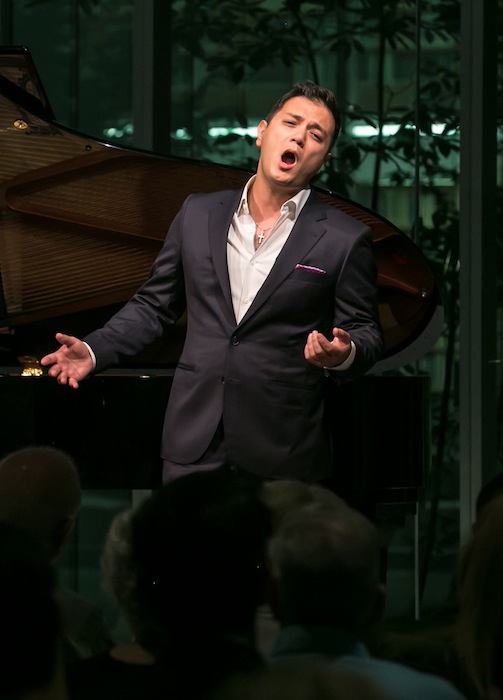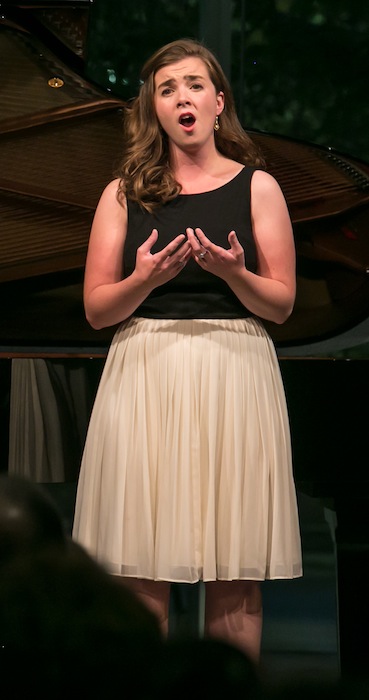Schubert rarities open Collaborative Works Festival in style

Sing to me, Muse, of the man of many lieder, whose music opened this year’s Collaborative Works Festival Wednesday night at the Poetry Foundation, with a selection of songs drawn from Greek myths. This all-Schubert program featured tenor and artistic director Nicholas Phan, with soprano Sarah Shafer and bass-baritone Douglas Williams, accompanied by pianists Myra Huang and Shannon McGinnis.
The songs were intelligently assembled into sets based on the subject matter of the myths: one based on the gods’ playthings, one based on the tale of the Oresteia, etc.
Conventional wisdom states that Schubert sank in opera and soared in lieder because his flair was only for the lyrical and the beautiful and not for the dramatic. But if there were ever a selection of his songs to belie this notion, these were them. Unlike his song cycles—which set short, strophic poems—these lieder are constructed like operatic scenes, each spanning diverse psychological states illustrated with contrasting musical textures.
The most striking difference between the songs selected by Phan and those assayed by Shafer and Williams was the sense of scale. The scope of Phan’s characterization was stunning, with his voice changing color in an instant to tinge whatever word or phrase he pleased.
He opened the program with “An die Leier,” whose protagonist alternates between melodramatic aspirations to sing of weighty matters, and blissful surrenders to sing of love. How stentorian Phan made the former, and how liquid the latter! In “Der zürnenden Diana,” his voice tenderly melted away like Actaeon’s life-force on each iteration of the word “matten” (“fading”).
Williams’ earliest songs in the program were a disappointment. Although his mid and low ranges were firm throughout the evening, his high notes started out rather squeezed. His acting was stiff, if not absent. And his German diction was sloppy—smudging some syllables and outright switching some words.
But in his last few lieder on the program, his dramatic instincts seemed to spring to life. His “Prometheus” and “Gruppe aus dem Tartarus” were strongly acted and sung. He captured both Prometheus’s defiance and his vulnerability, the latter with a plangent ache in the word “Klage” (“laments”).
If you closed your eyes, Shafer’s portrayals might run together, because her tone was unwaveringly warm and amiable. But if you opened your eyes, you would see how keen her characterization was. Each of her characters had a different body language that captured their attitude: Ganymede’s feverish curiosity, Antigone’s noble pleading.
The highlight of her performances was “Der Musensohn,” in which she breathed a charming air of mischief into the song’s false innocence.
Phan’s songs were all accompanied by Huang, and most of Shafer’s and Williams’ songs by McGinnis. The pianists’ approaches to this music largely matched those of the respective singers they worked with.
Huang’s accompaniments had bigger bones: bass lines were firm, repeated notes and dotted rhythms had a nervy drive. Her dramatic pacing in “Atys” was particularly fine.
McGinnis’s accompaniments were more understated. Her loudest chords sang and never shook like Huang’s. But she didn’t neglect to give Schubert’s figures personality. Each section of “Ganymed” requires especial vividness, and she supplied this to great effect.
The festival continues 7:30 p.m. Thursday at Ganz Hall with a solo recital by Susanna Phillips. caichicago.org
Posted in Performances


